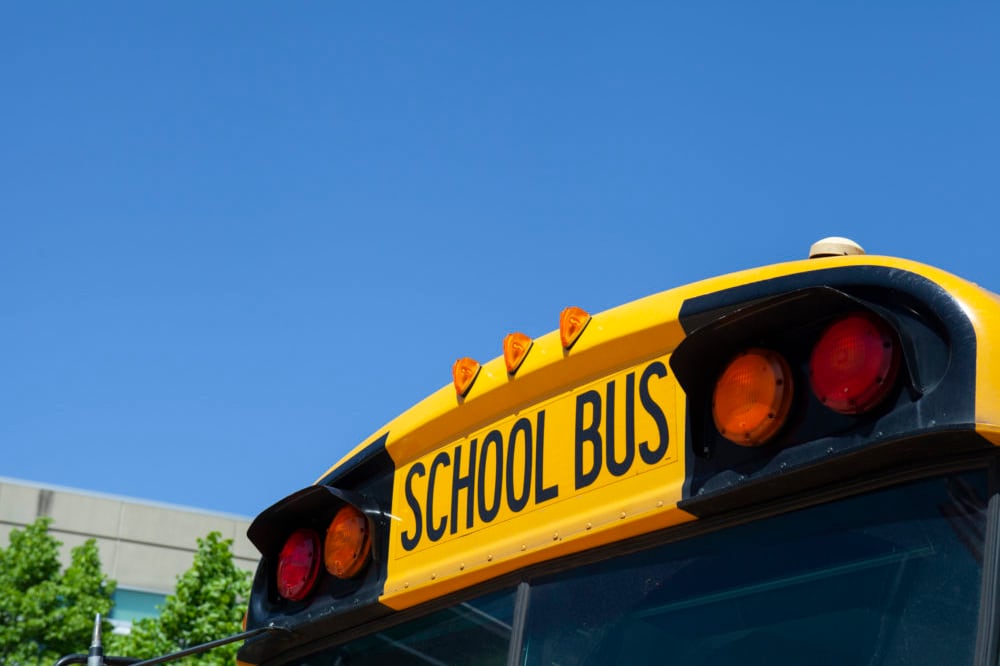Chicago Public Schools officials expressed doubt Tuesday that they will be able to provide busing to general education students for the rest of this school year.
“It’s very difficult to make a pivot within midyear to be able to add transportation now,” Charles Mayfield, the district’s chief operating officer, said during a hearing of the City Council’s Committee on Education and Child Development.
Mayfield’s comments come as the school district is still working to shorten bus rides for more than 100 students with disabilities to comply with state law.
In response to questions from aldermen about the state of student transportation, district officials cited a shortage of drivers as the core reason they’ve limited bus service so far this year to students with disabilities whose individualized education programs require transportation and those who are living in temporary housing. Both groups are legally entitled to receive bus rides to school.
About 5,500 general education students who were previously eligible for bus transportation were not offered busing this year — mostly those who attend magnet and selective-enrollment schools. The district is instead offering those families CTA passes, including a companion pass for a parent or guardian. Many parents have complained about the change, with some saying it’s hard to meet their work obligations and get their kids to school. It has led some families to transfer children out of their schools.
The district had already announced that it wouldn’t be able to expand busing to general education students for the rest of this semester. Officials have promised an update on transportation in December, before the new semester begins.
As of mid-October, the district said it had created bus routes for about 8,100 students, mostly children with disabilities.
Mayfield told aldermen that the district has now hired 715 drivers, compared with about 680 in July — meaning it has 54% of the drivers it needs. That’s only a small increase, he said, even though the district has held dozens of hiring fairs and worked with its bus vendors to increase hourly driver pay rates by $5 since last year.
“We just haven’t seen much traction with being able to build that pipeline back for drivers,” he said.
Officials added that the number of students with disabilities has grown by about 20% from last year, and the district is regularly receiving new transportation requests.
Chicago Public Schools has been under state watch since last November for failing to get students with disabilities on bus rides shorter than an hour each way. Last year, the district reported that 3,000 students were on rides longer than an hour, with 365 on rides lasting more than 90 minutes each way.
This year, with transportation for general-education students sharply limited, the district has touted an improvement in travel times for students with disabilities. As of Monday, 116 students with disabilities were commuting more than an hour to school, according to Mayfield’s presentation. That is, however, an increase from August, when 47 students with disabilities were on routes longer than one hour.
The state opened another investigation in September after advocates and parents complained that students with disabilities whose individualized education programs include transportation are being denied their federal right to a “free appropriate public education.”
The complaint alleges “widespread … delays and denials” across CPS and an “unnecessary administrative burden,” because families have to request transportation even after they’ve already been deemed eligible, according to a copy of the complaint obtained by Chalkbeat.
Looking ahead to next year, Mayfield said the district will be discussing various strategies to make bus transportation “more efficient.” The options could include creating regional bus pickup sites and adjusting school start and dismissal times. He emphasized that those decisions would be made in collaboration with unions.
“Candidly, there will be some decisions that will need to be made, because we’re not seeing that driver population come back,” Mayfield said.
Becky Vevea contributed reporting.
Reema Amin is a reporter covering Chicago Public Schools. Contact Reema at ramin@chalkbeat.org.






